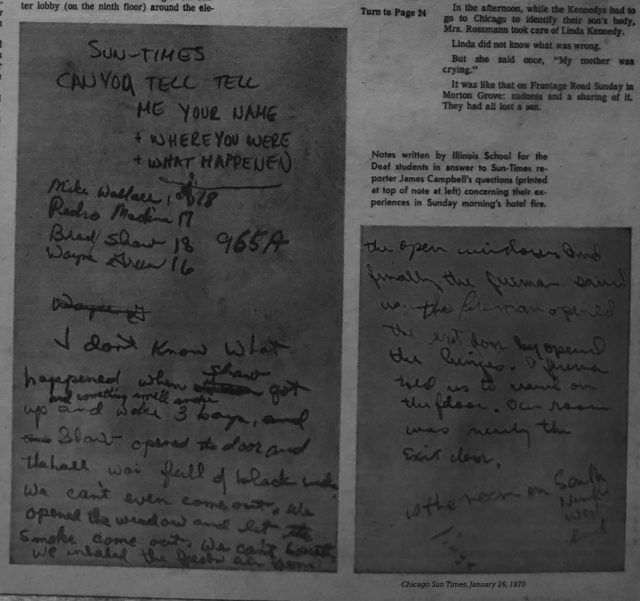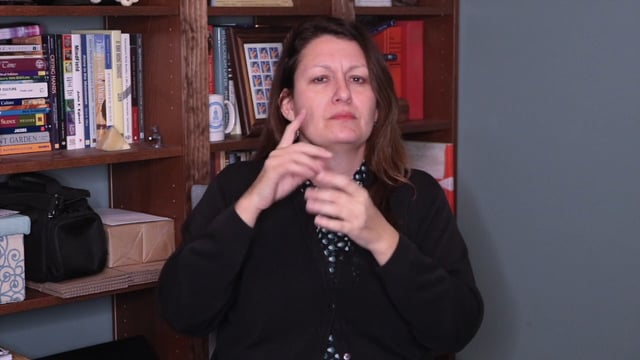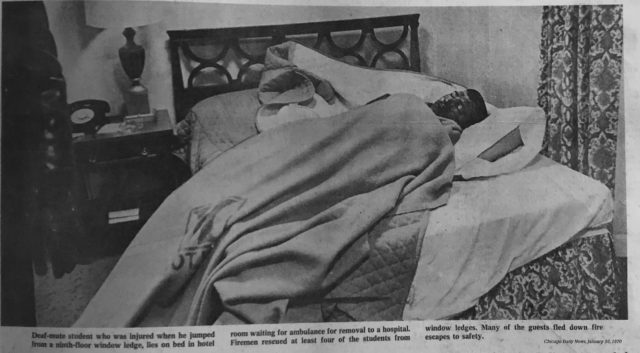This article originally appeared at i711.com.
Growing up in Chicago, I often took Amtrak rides to my grandparents’ house in Quincy, Ill. When I was 15, I went there for my spring break. These rides were leisurely for me, because I could nap, read, write, or play games.
That evening, we were at top speed after leaving the next-to-last stop in Macomb, a college town about an hour away from Quincy. I was hunched over with my head resting on the seat in front of me, playing on my GameBoy. I realized that I had better move my head up, because my neck could snap if something happened.
As I leaned back, there suddenly was a phenomenal screeching, with a foul stench filling the train. What I remember the most was the screeching and grinding of brakes; it seemed to go on forever, with every passenger leaning forward in sync with the train’s bumpy motions. After the longest time, the train finally came to an angry stop as we all snapped back into our seats. Time froze; the air was eerily quiet.
Slowly, people started standing up, looking at each other, picking up luggage that had fallen. I stayed in my seat, trying to see if I could figure out the situation. Everyone looked dazed. I was absolutely clueless and trying to figure out my next step, then I remembered I had what proved to be the most valuable tool that night.
I took a notebook out of my backpack, scribbled, “What happened?” and leaned over to a young woman across the aisle. I now realize she probably was in her late 20s, but at the time it seemed like she was so much older. She shrugged and wrote, “I have no idea!” She spoke with her co-workers, who also shook their heads. After a long wait, an announcement was made. I waited as the woman wrote, “They said we hit a pick-up truck.” The smell of gas and rubber continued to float in the air, and I didn’t really know what to do. I decided to stay put.
By now, people were going to the food car, getting beer, pizza and talking. It was a festive atmosphere, much to my puzzlement. I kept worrying about how I could notify my grandparents, who were probably in their car at the station. The woman’s boss gestured, asking if he could play with my GameBoy. This 20-year-old drummer sat next to me, fascinated by the fact that I was Deaf. He offered me beer, saying he could get me more. I politely declined and was given an ink-stained business card if I “ever want[ed] to just talk…”
After about an hour, the woman said that the driver was dead, and that the truck had been dragged half a mile. She also said that we could look at the truck. Being the rubber-necker that I am, I went outside with my notebook in hand. There were blinding red lights flashing everywhere. The red truck, hit at a rural railroad crossing without gates or lights, was smashed flat in the middle, wrapped around Amtrak’s trademark pointy front. There was a hole in the window where the driver had been ejected. In the bed were gloves and a toolbox. I stood there for the longest time; I felt helpless. I went inside, and for the next two hours, the woman kept me constantly updated on how we would get to Quincy. We finally got to Quincy at nearly two a.m.
The driver was a man named Ron, 51 years old with two kids.
I think of Ron and that night often. But what I always remember more was the woman’s willingness to keep me updated. She even called my grandparents the next day to make sure I was okay. If I had not brought a notebook and pens and if I had not taken the initiative to ask her, I probably would have been scared beyond belief that night.
I used to make fun of how my dad would always carry around a notepad and pen in his shirt pocket. I don’t do that anymore; I now carry around paper and a pen with me everywhere I go.
Copyrighted material, used by permission. This article can not be copied, reproduced, or redistributed without the written consent of the author.




